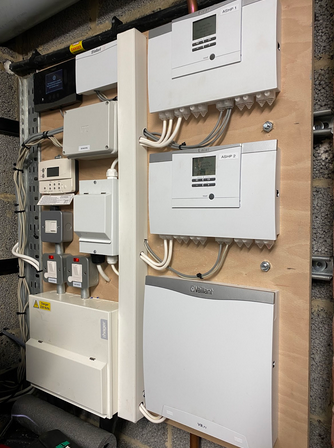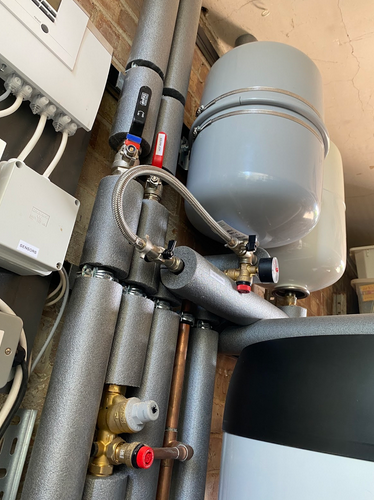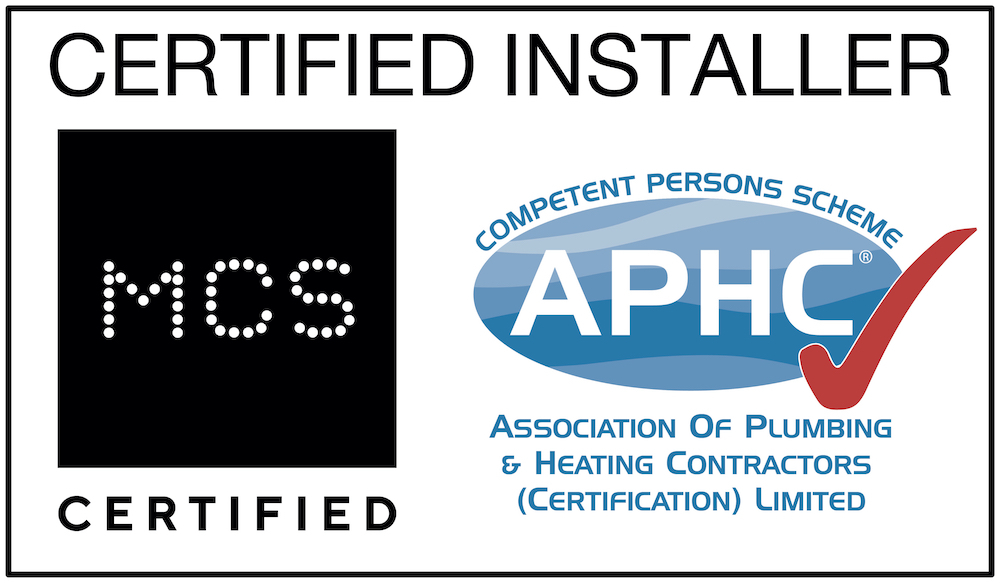Air Source Heat Pumps Disadvantages
December 4, 2023

Stick around and find out how to overcome these challenges for a warmer and more comfortable living space.
The Pros and Cons of Air Source Heat Pumps
Air-source heat pumps offer several advantages, but they also come with some disadvantages that buyers should consider.
Advantages of Air Source Heat Pumps
Air-source heat pumps save you money in the long run. They are cheap to run and need little energy. Because they use outside air, they help cut down on harmful gases from other heating methods.
This can be good for our planet as it fights climate change. These pumps are easy to install and do not take up much space. This is a big plus if you have a small house or flat.
Disadvantages of Air Source Heat Pumps
Air source heat pumps have several disadvantages to consider before making a decision. One drawback is the higher upfront cost compared to traditional heating systems. Additionally, using an air-source heat pump can lead to increased electricity bills.
Regular maintenance is also necessary for optimal performance. Another disadvantage is that air-source heat pumps may not perform well in severe weather conditions. Finally, these pumps can be quite noisy when operating.
In order to overcome these disadvantages, proper maintenance and servicing of the heat pump are essential. Investing in backup heating sources can also help mitigate any issues during severe weather conditions or when the pump needs repairs.
Adding sound insulation around the unit can reduce noise levels as well.
Common Disadvantages of Air Source Heat Pumps
Air source heat pumps have several common disadvantages, including higher upfront costs, increased electricity bills, the need for regular maintenance, poor performance in severe weather conditions, and noisy operation.
Higher upfront costs
Air source heat pumps have many advantages, but they also come with some disadvantages. One common disadvantage is the higher upfront cost compared to traditional heating systems. The initial installation of an air source heat pump can be expensive, which may deter some buyers.
However, it’s important to consider the long-term savings and environmental benefits that come with using a heat pump. While the upfront cost may be higher, the overall energy efficiency can lead to lower electricity bills in the long run.
It’s important for buyers to weigh these factors before making a decision about installing an air-source heat pump in their home or property.

Increased electricity bills
One of the disadvantages of using air-source heat pumps is that they can lead to increased electricity bills. This is because these heat pumps require electricity to operate, and they draw energy from the outdoor air to heat your home.
While they are generally more efficient than traditional heating systems, such as gas boilers or electric heaters, they still consume electricity in order to function. As a result, you may notice a rise in your monthly utility bills after installing an air source heat pump.
However, it’s important to consider the long-term savings and environmental benefits that come with using this sustainable heating system.
Need for regular maintenance
Regular maintenance is important for air source heat pumps to ensure their optimal performance and longevity. Just like any other equipment, these heat pumps require regular servicing and upkeep to keep them running smoothly.
By scheduling routine maintenance checks with a qualified technician, you can identify and address any potential issues before they become major problems. This includes cleaning or replacing filters, inspecting the system for leaks or damage, checking refrigerant levels, and ensuring proper airflow.
Regular maintenance not only keeps your air source heat pump operating efficiently but also helps maintain its warranty validity and avoid costly repairs in the future.
Poor performance in severe weather conditions
Air source heat pumps may not perform at their best in extreme weather conditions. During very cold temperatures, the pump may struggle to extract enough heat from the outside air to warm your home efficiently.
This can result in reduced heating capacity and a decrease in overall performance. It’s important to consider this limitation if you live in an area with extremely cold winters, as it may affect how well the heat pump meets your heating needs during those times.
Noisy operation
Air-source heat pumps can sometimes be noisy when operating. The noise typically comes from the outdoor unit, which contains the compressor and fan. The sound can be a concern for homeowners, especially if their unit is located near bedrooms or living areas.
However, it’s worth noting that newer models are designed to operate more quietly than older ones. If noise levels are a worry for you, you can consider adding sound insulation around the outdoor unit or installing an indoor unit in a different location to minimise the impact of the noise on your daily activities.
Ways to Overcome These Disadvantages
To overcome these disadvantages, it is important to prioritise proper maintenance and servicing of the air source heat pump. Additionally, investing in backup heating sources such as gas boilers can provide alternative options during severe weather conditions or when the heat pump is not performing optimally.
Adding sound insulation around the unit can also help reduce noise levels for a more comfortable living environment.
Proper maintenance and servicing
To ensure optimal performance and longevity of your air source heat pump, proper maintenance and servicing are crucial. Regular maintenance helps detect any potential issues early on and prevents costly repairs in the future.
It also ensures that your heat pump operates efficiently, saving you money on your electricity bills.
Maintenance tasks include cleaning or replacing filters, checking refrigerant levels, inspecting electrical connections, and lubricating moving parts. These tasks can be done by a qualified technician who specialises in heat pump systems.
It is recommended to schedule annual maintenance visits to keep your system running smoothly.
In addition to professional servicing, there are some simple maintenance tasks you can do yourself. This includes keeping the outdoor unit clean from debris such as leaves or branches, ensuring proper airflow around the unit, and clearing any ice buildup during the winter months.
Investing in backup heating sources
If you’re concerned about the performance of air source heat pumps in severe weather conditions or their noisy operation, investing in backup heating sources can be a good solution.
Having an alternative heating system like gas boilers, furnaces, or radiant floor heating can ensure that you have reliable and efficient heat even when your air source heat pump may struggle.
While it may require additional upfront costs and space for installation, having a backup heating source can provide peace of mind and help you maintain comfortable temperatures in your home throughout the year.
Adding sound insulation
To address the issue of noise from air source heat pumps, you can consider adding sound insulation. This can help reduce any disturbance caused by the operation of the heat pump. Sound insulation materials can be installed around the unit and on walls or ceilings to minimise noise transmission.
By taking this step, you can create a quieter environment while still enjoying the benefits of an air-source heat pump system.
Conclusion
In conclusion, while air-source heat pumps have many advantages, they also come with a few disadvantages. These include higher upfront costs, increased electricity bills, the need for regular maintenance, poor performance in severe weather conditions, and noisy operation.
However, these drawbacks can be overcome by proper maintenance and servicing, investing in backup heating sources, and adding sound insulation. Overall, despite their limitations, air-source heat pumps are still a viable option for those looking to reduce their carbon footprint and save on long-term energy costs.


